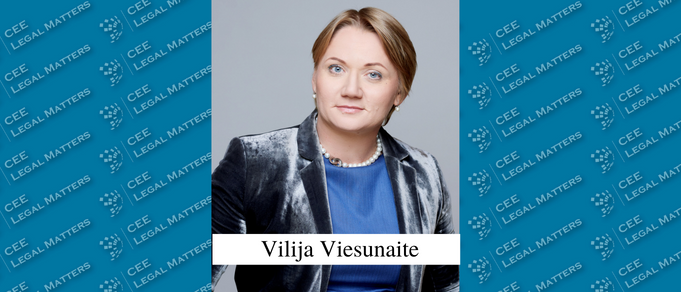In Lithuania, M&A transactions are up, litigation procedures are down, and the Competition Council has been handing out hefty fines for cartel infringements, according to Triniti Jurex Managing Partner Vilija Viesunaite.
“From the start of summer, we were already preparing for a bad winter,” Viesunaite begins. “Thankfully, we’re not there and are still busy, albeit some business sectors have shown signs of slowing down.” According to her, the M&A market – which is quite active – has been reshaping a bit, with “a clear trend of there being an uptick in the sales of local companies to foreign ones. In particular, Viesunaite says that the Lithuanian start-up sector has been performing admirably and that “investors are going after these companies – there is a lot of investment in the start-up business.”
Additionally, Viesunaite reports an increased demand for legal work surrounding ESG. “Everybody is looking for legal advice in this area,” she says. “But, in order to be properly equipped to advise clients on ESG matters, one also has to possess a strong command and knowledge on environmental, financial, and other matters,” she adds, explaining the complexities of the area.
Moving on with legal market updates, Viesunaite reports that there is a downturn in the number of disputes in Lithuania. “Following a recent litigation survey of ours, we have discovered that the dispute numbers are down four times when compared to ten years ago. It would appear that businesses are not deciding to go to the courts as much as before, rather opting to try and settle their differences or engage in arbitration proceedings,” she explains. “The statistics indicate that there are, as of right now, 0.27 disputes per company when looking at the entire market.”
Regardless, even with litigation not being the weapon of choice for most, Viesunaite says that there is “still quite a high number of disputes related to corporate restructuring and wind down – an echo of the COVID-19 period probably. We can look at these as indications of what’s to come in the future,” she says.
Also, Viesunaite reports that there has been a boom in IP registrations in the country, recently, on account of the “EU compensation system, which our country was using quite a lot. A high number of trademarks have been registered, and we hope that next year will be similar, despite the compensation system being closed already, because new funding will open up next year,” she says.
Finally, Viesunaite reports that the Competition Council of Lithuania has discovered that a “large number of medical distribution and sales companies have been engaging in collusion, and they were fined EUR 72 million for these infringements. According to the Competition Council, this is their biggest fine yet,” Viesunaite concludes.






















